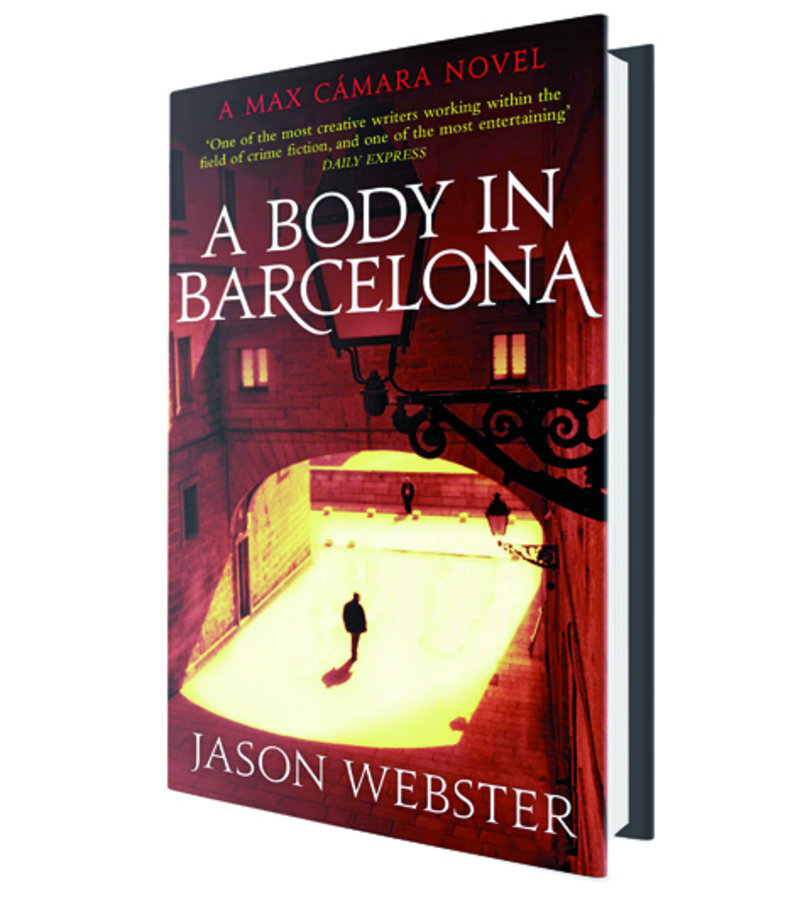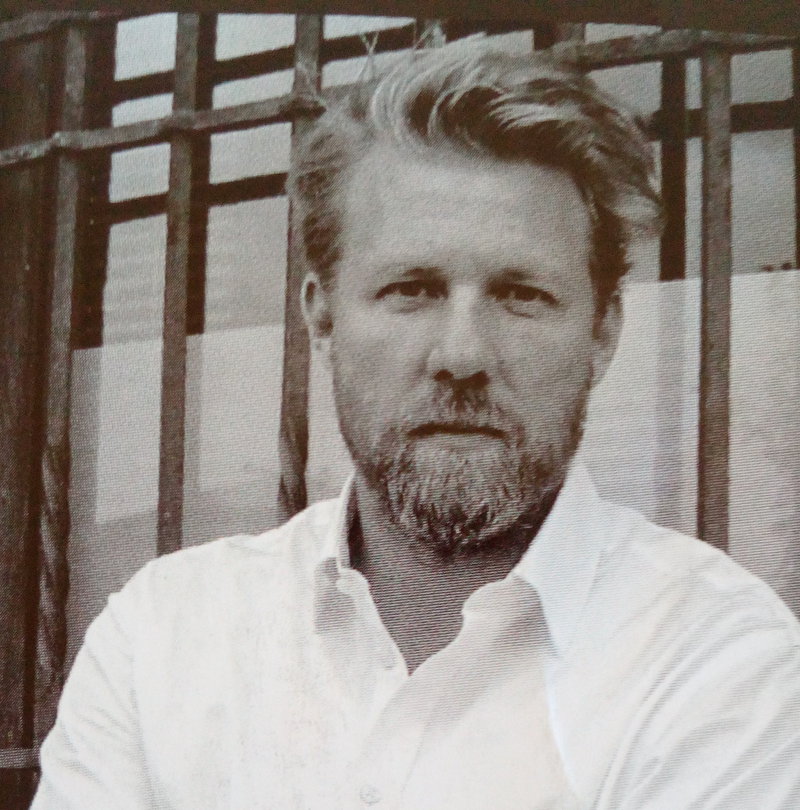Murder and Spanish dirty tricks
A Body in Barcelona is a novel featuring a major terrorist attack organised by secret strata of the Spanish state in alliance with ultra-rightists nostalgic for Franco, in order to head off a Catalan Unilateral Declaration of Independence.
When Jason Webster thought up this plot, he could hardly have imagined the slaughter on the Rambles on August 17, 2017, and the subsequent revelation of still unclarified links between the attack’s main instigator, an Imam in Ripoll, and Spain’s secret service: unclarified, because the Spanish government has declined to undertake any formal investigation. Webster’s fiction eerily anticipated grim reality.
Social Critique
A Body in Barcelona is one of a series featuring Max Cámara, a Valencia-based police inspector. Cámara is one of many ’outsider’ cops in modern crime fiction, such as Jo Nesbo’s Harry Hole, Ian Rankin’s John Rebus or Leonardo Padura’s Mario Conde. These heroes are policemen, yet have no interest in the traditional police role of defending the status quo. Considering government as corrupt, they have their own agenda of justice.
The alienated cop Cámara, an anarchist who smokes marijuana, survives in his job because he is expert at catching murderers. Much of the fascination of the series lies in Cámara’s anguish and constant crises. His parents died when he was young, his sister was murdered and, by the time A Body in Barcelona opens, his beloved grandfather Hilario has been recently buried and his girlfriend Alicia wants “time apart”. Homeless, Cámara bears as heavy a burden of despair as several of the famous Scandinavian detectives. Yet Webster’s novels are not dark, brooding books, like Henning Mankell’s, but overflow with the light of Valencia. Like Vázquez Montalbán’s Carvalho, Cámara knows how to enjoy the Mediterranean shore’s sensuous pleasures, such as sex, warm nights, wine and long paella lunches.
One of the pleasures of crime novels is voyeuristic tourism: we can slouch comfortably in an armchair while, for example, Donna Leon guides us along Venice’s canals. Here Jason Webster leads us with relish and precision through Valencia. Like many modern crime novels, though unlike guidebooks, Webster’s fiction is critical: the only intelligent approach to a city one loves.
His novels dissect Valencia. He looks at PP corruption, abortion, gay marriage, food, the (so far failed) attempt to destroy the Cabanyal quarter, the shrinking Horta and Albufera, the Falles, bull-fighting and the beach. They exalt the intricate streets of the flat, low, confusing old city, where the North Station, L’Estació del Nord, is on the South side and the winding river has no water.
The Crumbling Country
A Body in Barcelona takes place mainly in Valencia, but a good third of the book is set in Barcelona. Webster’s, and Cámara’s, eye is sceptical: “...what had once, very briefly in 1936, been a revolutionary anarchist city now managed to be both grubby and affected at the same time, and suffocated by tourists.”
This is Webster’s most explicitly political novel yet; and, as if to match the high stakes, Cámara is at his lowest ebb. Murder is placed in a context not of random low-lifes, but of political strategy orchestrated from the state. The book moves from Ceuta, Spain’s outpost in Africa and home to a sinister Colonel Terreros who reveres the patriotic, warrior past of the Spanish Foreign Legion, to Barcelona, where – the very antithesis of Terreros – Catalan independence supporters are trying to break from a Spain in crisis. Carlos, a cynical Spanish spy, explains why a threatened state is prepared to kill: “This world, our world, Max, is changing. Look around – every institution that this country is built on is crumbling: the monarchy, the mainstream political parties, the judicial system, the Church… People are angry. The crisis has exposed the rottenness of the whole structure and it’s in danger of falling down.”
Max does not think the crumbling country is worth killing for. For him, murder, not Catalan independence, is the “tear in the fabric” of society.
Webster’s novel is an ambitious and complex jigsaw, with several points of view. It includes an anarchist collective infiltrated by state spies; a Spanish spymaster manipulating the situation; a Valencian supermarket magnate financing right-wing terrorism.
His style is not flashy, nor over-written, but easily accessible. Several arresting descriptions of place are a strength. Any weaknesses in the book lie in a somewhat mechanical plot and not always believable characters (the anarchist father and son). The politics, though, notoriously hard to write convincingly into a novel, are well integrated, a full part of the story-line and of Cámara’s character.
The plot might have seemed far-fetched when the novel came out three years ago, though now it seems acute in its foresight. If you like a complex, fast-moving thriller, with a wounded, intelligent central character and acute social critique, A Body in Barcelona is for you.
book review
Deeply knowledgeable
In recent years, Jason Webster has become a well-known and widely translated writer. Born near San Francisco in 1970, he was brought up in Europe and took an (erudite) degree in Arabic and Islamic History from Oxford. He has lived for many years in Valencia with his wife and two children.
All of his 11 books so far centre on the Spanish state, six Max Cámara novels and five non-fiction books. Duende (2003) tackles flamenco; Andalus (2004), the impact of the Moors on Spain; and Guerra (2006), the legacy of the Civil War. The Spy with 29 Names (2014) tells the true story (or as near to the truth as it is possible to reach) of Juan Pujol, the World War Two double agent Garbo, who won medals from both the British and Hitler.
For me, the best of these fine books is Sacred Sierra (2009), an account of a year on a remote hill-farm in Castelló’s ravine-broken mountains. Not just another book in the travel sub-genre of self-centred English people abroad dealing with colourful locals, Sacred Sierra is original, deeply knowledgeable and full of telling stories. It draws together centuries-old understanding of the land and the modern world of abandoned farms, dying customs and Carlos Fabra’s empty airport.
A Body in Barcelona is the fifth of his six Max Cámara novels to date, starting in 2011 with Or the Bull Kills You (definitely an anti-bullfighting novel). All stand alone, though it is best to read them in sequence, as Cámara’s life, career and love develop through the books. There is already a sixth, Fatal Sunset.






